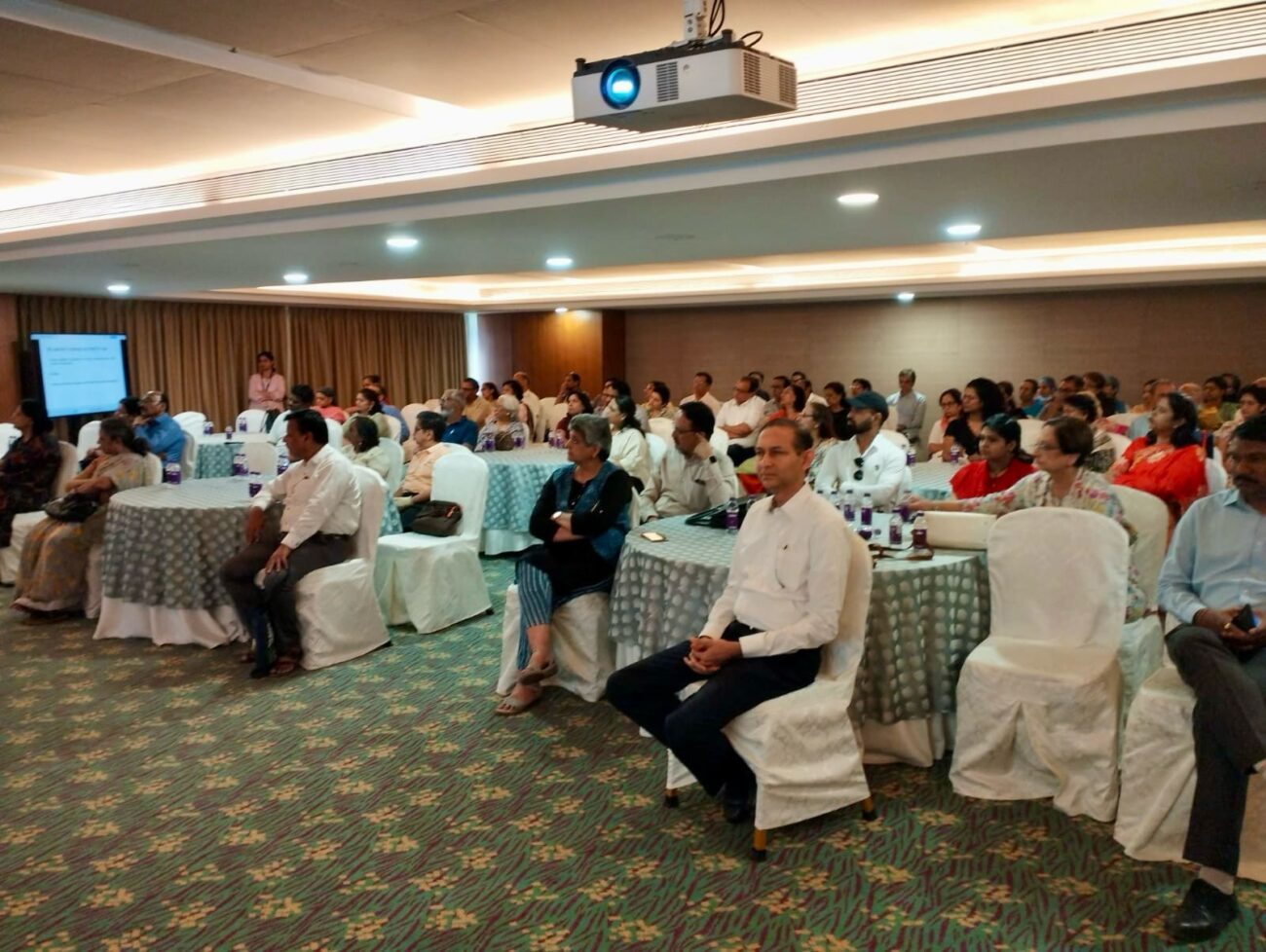The Asthma Burden spike in Delhi, blame it on Air pollution Experts recommend effective treatment- Inhalation Therapy
Air pollution caused asthma among 350,000 children in India, New Delhi occupies 38th position for burden among 125 cities, according to a Lancet Report Call comes in light of the concern that up to 7
- Air pollution caused asthma among 350,000 children in India, New Delhi occupies 38th position for burden among 125 cities, according to a Lancet Report
- Call comes in light of the concern that up to 7 out of 10 patients with asthma do not use inhalation therapy
- Campaigns like #BerokZindagi lead to “Winning against Asthma”
In view of rising number of Asthma especially among children in the country in general and traffic polluted city New Delhi in particular experts today called for more awareness through dialogue. Urging to adopt right treatment for better outcomes, experts also stressed upon dispelling myths and fears associated with inhalation therapy to effectively manage asthma and to encourage those affected by this condition to live a life without limits.
Addressing a press conference organized to create awareness on Ashtma, Dr Anant Mohan, Head of Department – Chest (Pulmonary Medicine), AIIMS and Dr Gaurav Sethi, Pediatrician, In Good Hands Clinic, New Delhi provided valuable tips to WIN AGAINST ASTHMA and a live #BEROKZINDAGI.
Asthma is a chronic disease which affects large populations worldwide and its number is rising every year. According to the WHO Fact sheet, between 100 and 150 million people around the globe -suffer from asthma. In India, the soaring numbers have reached 15-20 million and the number will continue to grow until adequate emphasis is laid on the importance of identifying the right medication, which can help manage asthma effectively.
The reasons for the increasing prevalence of asthma are multifactorial. They include rising air pollution with increase in air particulate matter, smoking, incorrect treatment in children, viral infections in early childhood and increasing awareness among health care professionals.
According to a Lancet Report, traffic-related pollution caused asthma among 350,000 children in India in 2015, second only to China. The Lancet study analysed 194 countries and 125 major cities worldwide. Although less than half the size of China’s burden, India had the next largest number of cases (350,000) due to its large population of children. Among cities Paris ranked 21st (33 per cent), New York ranked 29th (32 per cent), London 35th (29 per cent), and New Delhi 38th (28 per cent).
Emphasising on right treatment and awareness, Dr Anant Mohan said, “It is very important to change the perception towards Asthma and Inhalation therapy. While inhalation treatment can play a crucial role in reducing the impact of asthma on people’s lives, adherence is crucial. Inhaled medicines help to deliver the drugs directly to the lungs where they are required, so they work faster, better and with negligible side effects.”
“The challenge is convince the patients to accept inhalers and adhere to the treatment prescribed in order to get the full benefit. Inhalation therapy works to control asthma by preventing and relieving symptoms and reducing flare-ups, but they will work if patients work in partnership with their physicians and take them as advised,” he added.
Another challenge to manage asthma when there is discontinuation of the medication once the symptoms have subsided. Unfortunately, this may also result in the aggravation of the disease and flare-up of symptoms –leading to worsening of disease. Experts suggested consulting a doctor before taking such steps as asthma usually requires long-term treatment.
According to Dr Sethi, ongoing education is of paramount importance in chronic diseases like asthma. “This is precisely where #BerokZindagi will lead to “Winning against Asthma” and will enable patients to participate and have a more effective role in their own treatment,” he added.
“While encouraging an increased dialogue on the management of asthma, lets us mark this World Asthma Day to directly resonate with our endeavor of enabling people with the condition to achieve more in their daily lives,” said Dr Sethi.
There are many reasons why patients discontinue inhalers. These include myths about inhaler devices and social stigmas regarding their use, concerns about the cost of medication and their side effects, and lack of awareness about why long term therapy is required.
The need for the hour is to overcome barriers/ taboos and understand the importance of inhalation therapy and adhere to it. According to the experts, for a sure win against asthma, an effective treatment such as inhalation therapy is required.
“Inhaled corticosteroid therapy (ICT) is the cornerstone of asthma management. For the effectiveness and safety of any treatment modality, optimal drug delivery is crucial. In the case of ICT, the drug reaches the inflamed airways directly in small doses, limiting the potential side effects. In the case of oral medication, the drug dosage is many times higher than in ICT. This excess dosage then reaches other parts of the body too, where it is not required and increases the systemic side-effects,” explained Dr. Mohan.
Experts were of the view that myths associated with the treatment needs to be busted. Inhaled corticosteroids have been recognized and widely accepted as the mainstay of asthma management. However, due to lack of awareness, many people remain reluctant to take this therapy. Several studies report poor adherence towards asthma medication with measured rates of non-adherence ranging from 30 to 70 percent. Newer innovations in inhalers have been recently made, such as incorporating dose counters in the device.
The National Asthma Education and Prevention Program (NAEPP), in its updated guidelines, also recommended the use of ICT for mild, persistent asthma across all age groups, including children. Inhaled corticosteroids have been found to bring about improvements in the quality of life of patients by helping reduce the frequency of asthma attacks, improving asthma control, reducing the requirement of oral steroids and by bringing down the frequency of emergency room (ER) visits and hospitalizations.





